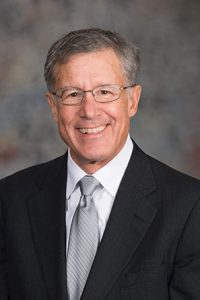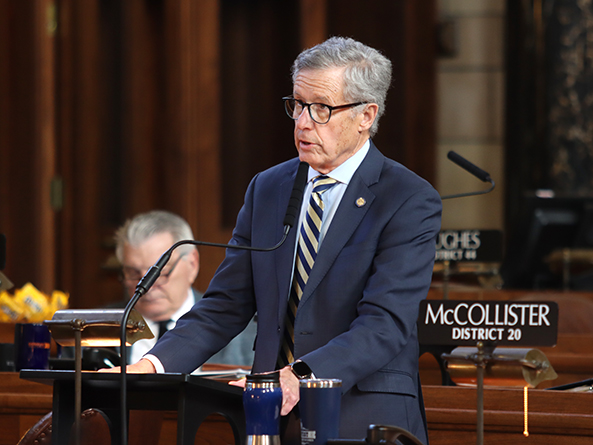Occupational licensing bill discussed
Lawmakers considered a bill on select file April 8 meant to increase professional opportunities for individuals with a criminal history.

LB709, as introduced by Omaha Sen. John McCollister, would amend the Occupational Board Reform Act to provide specific factors to be considered by occupational boards when reviewing a preliminary application for an occupational license, governmental certification or other state-issued occupational credential.
Under the bill, in order to be disqualifying, a felony conviction would have to be related directly to the nature of the occupational field and for a crime that would make credentialing that applicant a “direct and substantial risk to public safety.”
McCollister said the proposal would provide a “fair chance” for individuals with criminal histories to enter occupations if their offenses were unrelated to the field they seek to enter.
A Government, Military and Veterans Affairs Committee amendment would alter the original bill’s language and add provisions of two additional measures.
LB263, introduced by Albion Sen. Tom Briese, would create a framework for issuance of Nebraska occupational licenses and occupational certifications based on credentials and work experience from other states. Several occupations would be exempt, including those regulated by the state supreme court, the State Electrical Board, the Nebraska Commission on Law Enforcement and Criminal Justice and a credential issued pursuant to the Public Accountancy Act.
LB1153, as originally introduced by McCollister, would add two members to the State Electrical Board, changing it from seven to nine members. The committee amendment would retain membership at seven, and require some positions to be affiliated with a labor union. The changes would take effect at the expiration of current membership terms.
Kearney Sen. John Lowe made a motion to divide the question and consider the amended provisions of LB709 separately from those of LB263 and LB1153. The motion was successful.
Discussion focused on the amendment containing provisions of LB263 and LB1153.
Briese said the provisions of his bill would remove barriers to entry for individuals who are credentialed in other states who want to move to Nebraska.
“We’re trying to grow our state, grow our workforce and grow our population,” he said.
Sen. Robert Hilkemann of Omaha offered an amendment that would exempt occupational boards under the Uniform Credentialing Act that issues credentials based on reciprocity. He said the change would impact approximately 35 health care professions and maintain the involvement of Nebraska licensing boards in credentialing decisions.
“I just want to do what’s best for the health and safety of our residents,” Hilkemann said. “It’s important that we maintain our autonomy as a state.”
The amendment failed on a vote of 8-20.
An amendment offered by Norfolk Sen. Michael Flood that would exempt realtors, engineers and architects from the bill’s provisions was adopted 25-0. Twenty-five votes were needed.
Hilkemann then offered a motion to recommit LB709 to the Government, Military and Veterans Affairs Committee, saying the debate had become so complicated that many senators were unclear about actions being taken on the floor regarding the underlying bill and the divided committee amendment.
The motion was pending when the Legislature moved to the next item on the agenda. The bill is unlikely to be debated again this session.


